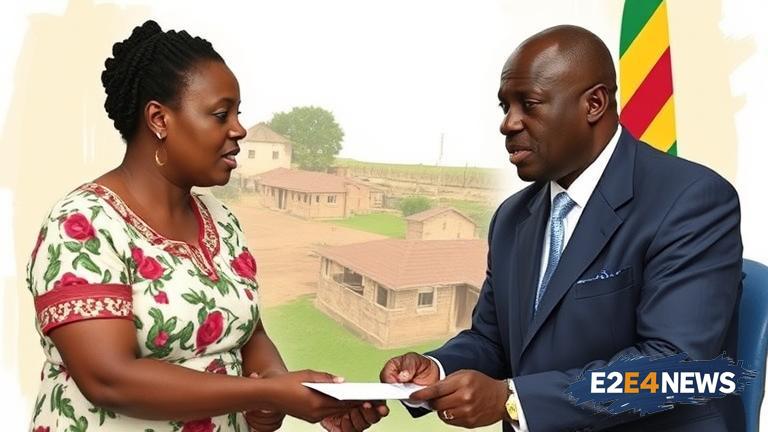The Volta Council of State representative has called for a strengthening of local governance in Ghana, highlighting the importance of effective leadership at the regional level. This appeal was made at the Regional Presiding Members Conference, where the representative emphasized the need for a more robust and accountable system of governance. The current system, according to the representative, is plagued by inefficiencies and a lack of transparency, which hinders the delivery of essential services to citizens. To address these challenges, the representative proposed a series of reforms aimed at enhancing the capacity of local governments to respond to the needs of their constituents. These reforms include the establishment of clear lines of accountability, the promotion of citizen participation, and the development of more effective mechanisms for resource allocation. Furthermore, the representative stressed the importance of building the capacity of local government officials, through training and capacity-building programs, to enable them to effectively discharge their duties. The representative also emphasized the need for a more inclusive and participatory approach to governance, one that takes into account the diverse needs and perspectives of all stakeholders. This, according to the representative, can be achieved through the establishment of robust feedback mechanisms and the promotion of transparency and accountability. In addition, the representative highlighted the importance of leveraging technology to improve the delivery of services and enhance the overall efficiency of local governance. The use of digital platforms, for instance, can facilitate the reporting of issues and the tracking of progress, enabling citizens to hold their leaders accountable. The representative also noted that a stronger system of local governance is essential for promoting economic development and reducing poverty. By empowering local governments to take ownership of their development agendas, Ghana can unlock the potential of its regions and promote more inclusive and sustainable growth. The representative’s call for reform has been welcomed by stakeholders, who recognize the need for a more effective and accountable system of governance. However, the implementation of these reforms will require the collective effort of all stakeholders, including government officials, civil society organizations, and citizens. Ultimately, the success of these reforms will depend on the ability of Ghana’s leaders to work together to build a more just and equitable society. The Regional Presiding Members Conference provided a platform for stakeholders to discuss the challenges facing local governance in Ghana and to explore solutions to these challenges. The conference also highlighted the importance of collaboration and coordination among different levels of government, as well as the need for a more integrated approach to development. In conclusion, the Volta Council of State representative’s call for stronger local governance is a timely reminder of the need for reform in Ghana. By working together to build a more effective and accountable system of governance, Ghana can promote more inclusive and sustainable development, and unlock the potential of its regions. The representative’s proposals have the potential to make a significant impact, and it is essential that stakeholders work together to implement these reforms. The future of Ghana’s development depends on it. Ghana’s local governance system has been plagued by challenges, including corruption, inefficiency, and a lack of transparency. The representative’s call for reform is a step in the right direction, and it is essential that stakeholders take action to address these challenges. The Regional Presiding Members Conference was an important step in this process, providing a platform for stakeholders to discuss the challenges facing local governance and to explore solutions. The conference highlighted the importance of collaboration and coordination among different levels of government, as well as the need for a more integrated approach to development. In order to achieve this, it is essential that stakeholders work together to build a more effective and accountable system of governance. This will require the collective effort of all stakeholders, including government officials, civil society organizations, and citizens. The representative’s proposals have the potential to make a significant impact, and it is essential that stakeholders take action to implement these reforms. The future of Ghana’s development depends on it.
